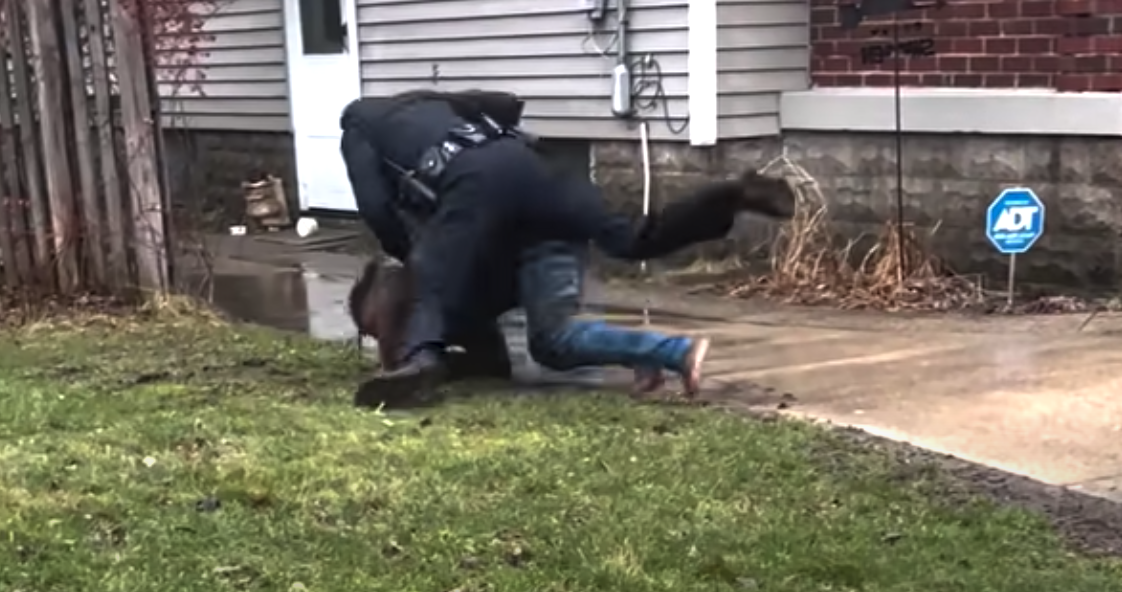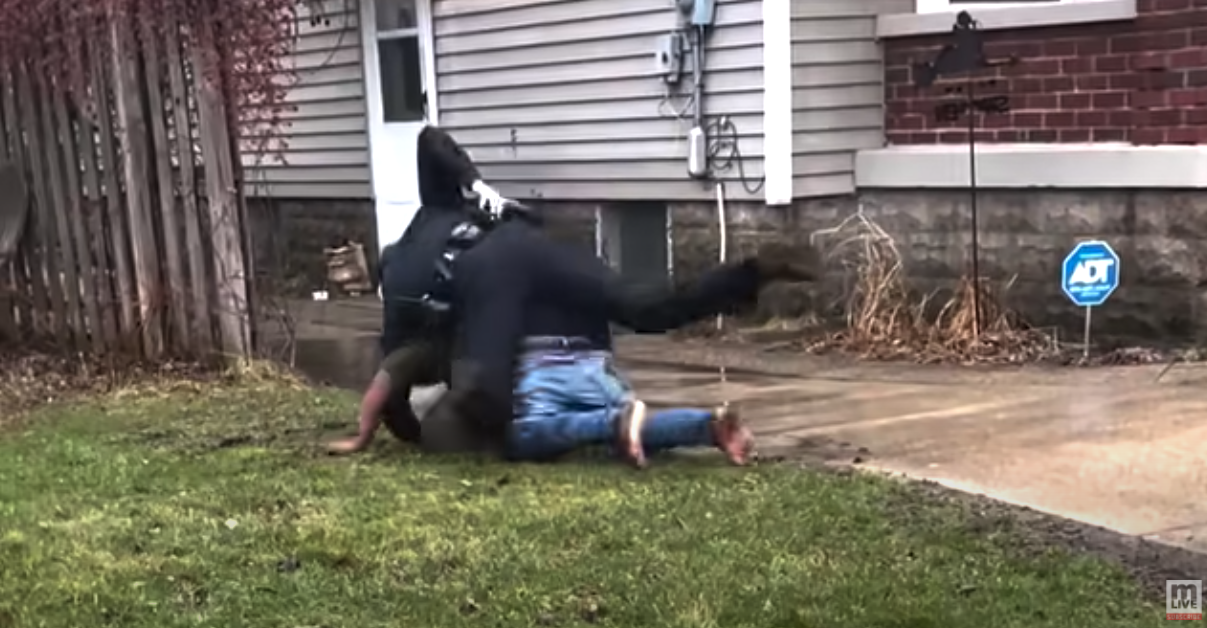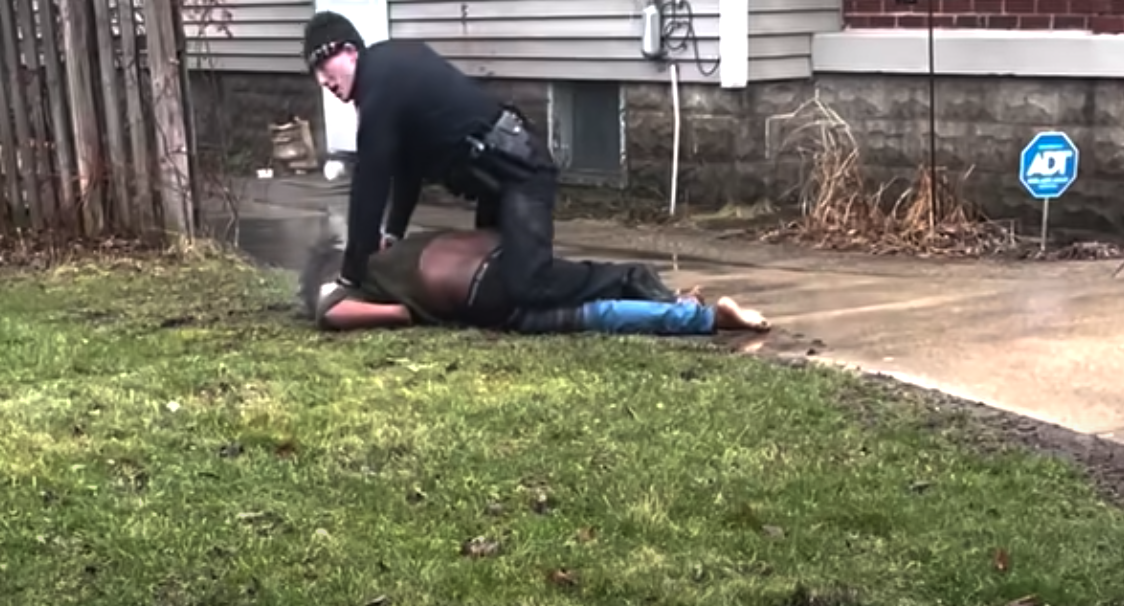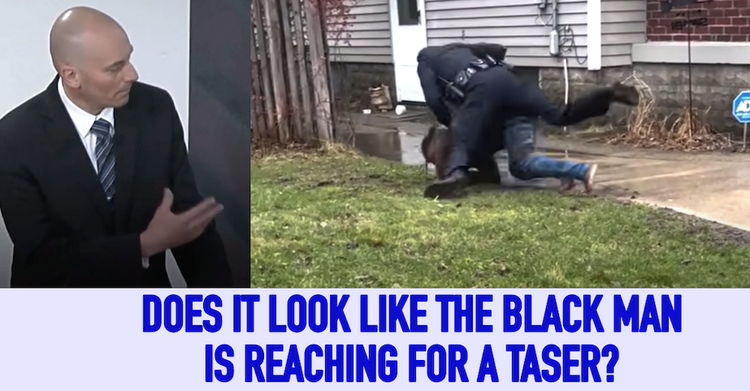Court Asked to Apply the Law of The Jungle Standard ("qualified immunity") in Patrick Lyoya Case. White Cop Too Weak to Subdue Fleeing Black Man Shot Him in the Back of the Head Rather than Let Him Go
/From [HERE] Attorneys for the former Grand Rapids police officer who shot and killed Patrick Lyoya last year have filed a request in federal court, seeking to get the wrongful death lawsuit against him thrown out, WOOD TV-8 reports.
In a motion to dismiss filed Monday, Feb. 6, Schurr’s attorneys argued he's protected by qualified immunity, which, generally speaking, prevents officers from being sued for actions they took in the line of duty.
Lyoya’s family sued Schurr and Grand Rapids in December, alleging excessive force and a violation of Lyoya’s Fourth Amendment rights when he was shot April 4, 2022, after Schurr pulled him over. The lawsuit argued it was “objectively unreasonable” for Schurr to have shot Lyoya.
Schurr’s attorneys say his actions were reasonable. They argue he didn’t violate Lyoya’s Fourth Amendment protections and that, because it hasn't been demonstrated to the court that Schurr’s actions were unconstitutional, the lawsuit should be tossed.
“Schurr is entitled to qualified immunity because the videos demonstrate that Plaintiff cannot plead a constitutional violation nor a violation of clearly established law,” the motion reads in part, referencing body camera, dashboard camera, home surveillance and cellphone video that show the shooting.
That video shows that Lyoya ran away from Schurr during the traffic stop and the two then grappled over Schurr’s Taser, with Schurr repeatedly ordering Lyoya to let go. Schurr was on top of Lyoya, trying to hold him down, when he pulled his gun and shot him once in the back of the head, killing him.
“…Lyoya posed an immediate threat to the safety of Ofc. Schurr once he armed himself with the Taser,” Schurr’s lawyers wrote.
Other cameras — from the officer’s vehicle, a nearby doorbell security system and a bystander’s cellphone — capture different portions of the encounter. Shortly before the fatal shot is fired, Officer Schurr yells, “Let go of the Taser!” Mr. Lyoya is facing the ground and pushing up, with the officer on top of him, in the moments just before the shooting. Again, said statement from a cop-actor performing for the camera is self-serving - the video speaks for itself.
At any rate, Lyoya was under arrest for a traffic violation, which is a minor misdemeanor. As such, he was not a fleeing felon. The Supreme Court has explained the use of deadly force to prevent escape is unconstitutional, at least in regard to white citizens that is. The Court has explained,
The use of deadly force to prevent the escape of all felony suspects, whatever the circumstances, is constitutionally unreasonable. It is not better that all felony suspects die than that they escape. Where the suspect poses no immediate threat to the officer and no threat to others, the harm resulting from failing to apprehend him does not justify the use of deadly force to do so. It is no doubt unfortunate when a suspect who is in sight escapes, but the fact that the police arrive a little late or are a little slower afoot does not always justify killing the suspect.
A police officer may not seize an unarmed, nondangerous suspect by shooting him dead… Where the officer has probable cause to believe that the suspect poses a threat of serious physical harm, either to the officer or to others, it is not constitutionally unreasonable to prevent escape by using deadly force. Thus, if the suspect threatens the officer with a weapon or there is probable cause to believe that he has committed a crime involving the infliction or threatened infliction of serious physical harm, deadly force may be used if necessary to prevent escape, and if, where feasible, some warning has been given.
Tennessee v. Garner - 471 U.S. 1 at page 11 (1985).



Lyoya’s family’s attorneys have until March 6 to respond to the motion to dismiss.
Schurr has been charged with second-degree murder in Lyoya’s death. A Kent County judge last week said she wouldn't dismiss the charge and ordered the case sent to a jury. An appeal on the criminal front is expected and attorneys on both sides are skeptical the case will go to trial in March, as had initially been scheduled.














































































































































































































































































